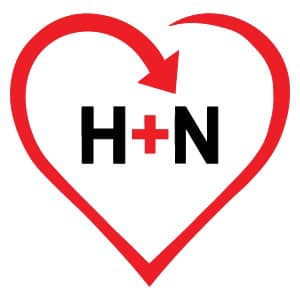What is blood pressure, and how do you measure it? Generally blood pressure is the effort and force of blood as it circulates throughout your body and specifically in your arteries and blood vessels. Blood pressure is measured using a meter called a sphygmomanometer. Most-likely you have already seen one of these at your doctor’s office.
The device wraps around your arm like a cuff and it fills with air and releases providing a reading. The systolic blood pressure is considered the top number, it relates to the force that your heart is pumping. The diastolic, or bottom number, is related to the force exerted between heart beats.
What is Healthy Blood Pressure?
Blood pressure readings of 120 over 80 is considered to be healthy and normal. However, anything above or exceeding 140 over 90 is considered high blood pressure and unhealthy, according to the National Institute of Health.
As you get older, blood pressure naturally rises. It is estimated that 65% of Americans 60 years and older have hypertension or high blood pressure. According to the Center for Disease Control and Prevention, one in three adults in the United States have high blood pressure. One of the main concerns is that many adults don’t realize they have high blood pressure because there are rarely any symptoms.
According to Dr. William B. White, chief of hypertension and clinical pharmacology at the University of Connecticut, School of Medicine, hypertension, or high blood pressure, is considered an asymptomatic disorder due to the lack of symptoms until something serious happens.
Having your blood pressure checked is the only way to monitor and measure your blood pressure. Dr. White recommends adults age 50 and older have their blood pressure taken annually by a doctor. This will help detect any hypertension issues early.
If you already have high blood pressure or you are concerned that you are developing high blood pressure, you can actually measure it at home. You can purchase a blood pressure device at your local pharmacy and monitor your blood pressure at home. The directions are usually easy to follow and there are a variety of styles to choose from, ranging from standard devices to digital.
What causes high blood pressure?
How do you know if you are in danger of developing high blood pressure? Besides aging there are numerous things that can contribute to developing hypertension, including stress, obesity, hereditary, lack of exercise, unhealthy diet, excessive salt in the diet and excessive amounts of alcohol.
Lowering Blood Pressure
The good news is that making changes to your lifestyle can help lower blood pressure and reverse the damage that has been caused to your blood vessels. At the beginning of your diagnosis your doctor will generally ask you questions about your lifestyle.
They often recommend that you improve your diet, limit salt and sodium intake from your diet by avoiding processed foods and avoiding heavily salted food. Adding potassium rich vegetables and fruits to your diet such as spinach, bananas, avocados and papaya will help counteract sodium. The recommended daily sodium limit is about 2/3 a teaspoon of salt, or less than 1,500 milligrams per day.
You can also add other beneficial foods to your diet such as blueberries and dark chocolate which help improve the elasticity of blood vessels. Other foods that have a positive impact on blood pressure include nuts, cold water fish and tomatoes.
Exercise to Lower Blood Pressure
Aerobic exercise such as walking, jogging, bike riding, swimming and hiking are a good solution to lowering high blood pressure levels. According to the Mayo Clinic, 20 to 30 minutes of exercise per day can bring down systolic pressure readings by about three to five points. Incorporating exercise into your daily routine is essential to improving your blood pressure levels.
Stress and Hypertension
Life is filled with stressful situations on a daily basis. Unfortunately you can eat a healthy diet, exercise daily and still have high blood pressure due to stress. Anxiety and stress are known to be major causes of high blood pressure. Finding beneficial ways to deal with stress such as practicing yoga, meditation, tai chi and deep breathing is helpful since these methods are soothing to the body and mind. You will never be able to completely eliminate stress from your life, but handling situations in a calm manner, finding healthy solutions to stressful life situations and even taking a long walk in the woods will help you cope better.
Natural Blood Pressure Supplements
Patients who suffer with high blood pressure often find themselves taking medication prescribed by their doctor. While medication is often a temporary solution, depending on your situation, they do have side effects. This encourages patients to find natural supplements to help maintain healthy blood pressure levels.
PD120 is the best choice since it is made with natural ingredients, has no side effects and helps maintain healthy blood pressure levels. Speak to your doctor today about PD120 to see if it will benefit you. Remember this supplement also improves energy, strength, libido and motivation. It could be an essential part of your daily routine.

Leave a comment
This site is protected by hCaptcha and the hCaptcha Privacy Policy and Terms of Service apply.